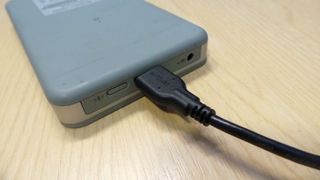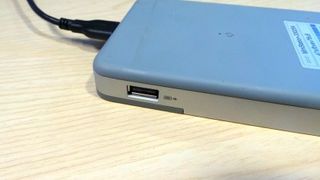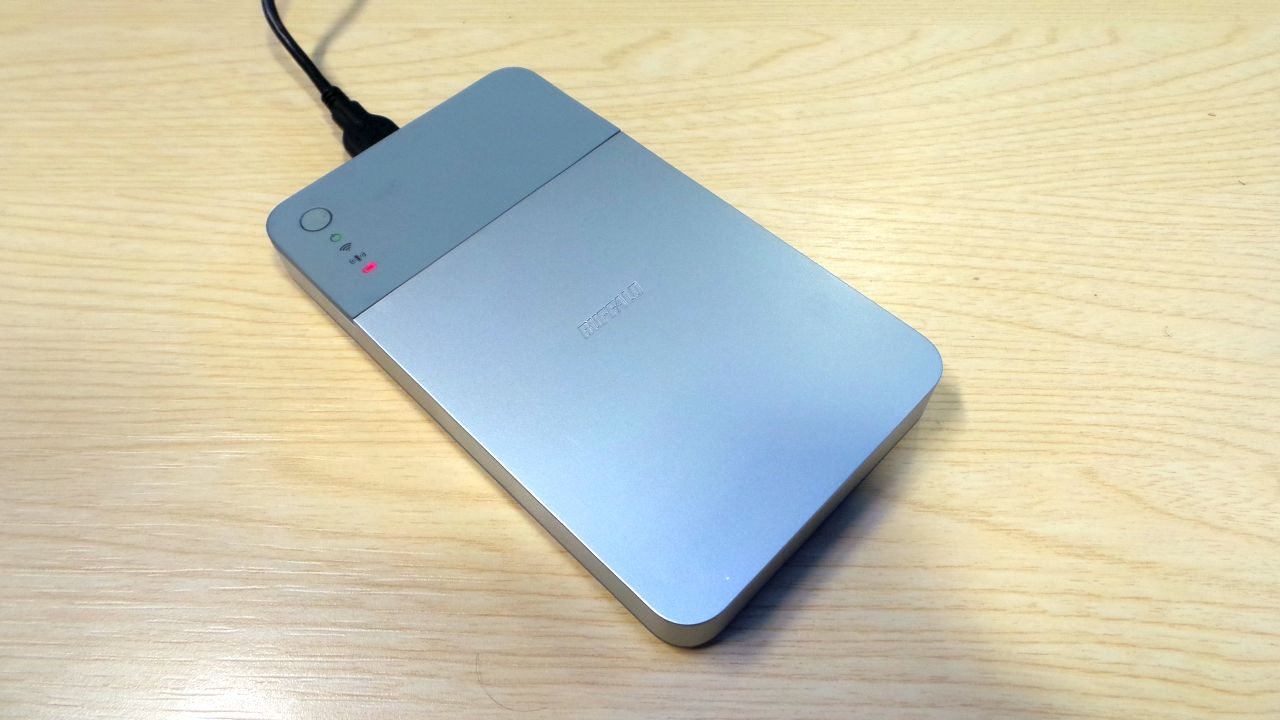TechRadar Verdict
The Buffalo Ministation Air 2 is solid enough, but expensive for what it offers – namely 500GB of storage, with rivals delivering twice that amount for the same outlay.
Pros
- +
Ability to charge another device
- +
Three-year warranty
- +
Up to eight concurrent connections
Cons
- -
Too expensive for what it offers
- -
Average performance
Why you can trust TechRadar
Hard disk vendors are no longer content selling vanilla drives and they're now looking for higher margin products, which explains why so many have rushed to unveil wireless hard disk drives.
We have had models from Seagate, LaCiE (a Seagate company) and Western Digital already sent over for review, and Buffalo's Ministation Air 2 500GB (a bigger 1TB model is also available) is the latest to join them, and the first to come from a value-added vendor (i.e. one that doesn't actually build hard disks).

At just over £115 (around $174, AU$214), however, it will have a tough time competing against its bigger rivals (note that the 1TB model retails for around £134 – which is about $203, AU$250). A 2TB Seagate Plus drive costs £150 (around $227, AU$280) while the 500GB model sells for £70 (around $106, AU$130). So clearly, Buffalo will have to come up with a clever trick in order to justify the premium.
Design
Externally, the drive, also known as the HDW-PDU3, sports an attractive two-tone grey finish with indicators for battery life, power, Wi-Fi and WPS/AOSS on the front.
AOSS (Air Station One-Touch Secure System) is Buffalo's take on simplifying the setting up of a secure wireless connection by simply pushing a button. It does however require compatible devices.
Underneath is the default password to access the device. The Ministation is secured out of the box which is a good idea – in theory – except that anyone who has access to it physically can just copy these credentials.
You can charge the Ministation Air 2 using either the provided plug or via USB (USB 3.0, in fact) and uniquely amongst the devices we've tested, Buffalo's external hard disk drive allows you to charge another device – there's no daisy-chaining though.
Note that doing so will reduce the standalone battery life of the device, so this functionality should ideally only be used in emergency situations. Don't expect the 3,020mAh battery to last that long if shared (you won't be able to connect another storage device unfortunately).
Buffalo claims a battery life of up to 12 hours but that is likely to depend on a number of factors including the amount of devices connected to the Ministation Air 2, the type of content being accessed and how often are files accessed.

As for the device's app, it offers similar levels of functionality to competitors. Thanks to its DLNA compatibility, you should be able to stream movies and multimedia content to most compatible devices.
This drive has a decent user interface and basic file management capabilities. Like its rivals, you can use the Ministation Air 2 as a bridge allowing you to use the storage device at the same time as the internet.
Performance
The Ministation Air 2 reached 107.4MBps on the CrystalDiskMark benchmark, which is average for that category, and scored 1780, only better than the WD MyPassport 2TB model and far behind the Seagate Wireless 2TB drive.
The reason why performance is far from being stellar is because the Air 2 uses a 500GB platter. A higher platter density – as found in higher capacity hard disk drives – usually translates into a higher transfer rate (hence better performance), and this is pretty evident here.
Buffalo doesn't make hard drives. Instead, it buys them from a manufacturer. The drive used is a Hitachi model, the Travelstar HTS545050A; it has 8MB cache and, like most other portable drives on the market, it has a spinning speed of 5400 RPM.
Verdict
The Buffalo Ministation Air 2 is an average wireless storage device let down by a high price tag. True, it does allow you to charge an extra device, and it comes with a three-year warranty. However, given how competitive this segment has become, we think that the near-50% price premium here is not justified and certainly not sustainable.
What's more, the rise of portable NAS-capable devices (like Verbatim's MediaShare Wireless, the RavPower FileHub or the Kingston Mobilelite Wireless) make wireless hard disk drives on the whole seem like a risky investment. You can't upgrade the latter and they don't usually have as many features. Not to mention the fact that the NAS-capable options are affordable; you can get the Mobilelite and a 2TB portable hard disk drive for £85 or so (around $129, AU$158).
However, Buffalo is a versatile company being equally at ease in storage as it is in networking. Perhaps this combination is where Buffalo needs to look for its niche. For now though, it will be very difficult for Buffalo to match what the competition is offering.

Désiré has been musing and writing about technology during a career spanning four decades. He dabbled in website builders and web hosting when DHTML and frames were in vogue and started narrating about the impact of technology on society just before the start of the Y2K hysteria at the turn of the last millennium.

Want the best Black Friday tablet deal? Forget the iPad Air, this Samsung Galaxy Tab S9 FE deal is a steal

This app means I’ll never get caught in the rain again, hopefully

Here's a great idea! MSI is giving away Microsoft 365 office suite with some of its laptops in Japan — so when will that be extended globally?
